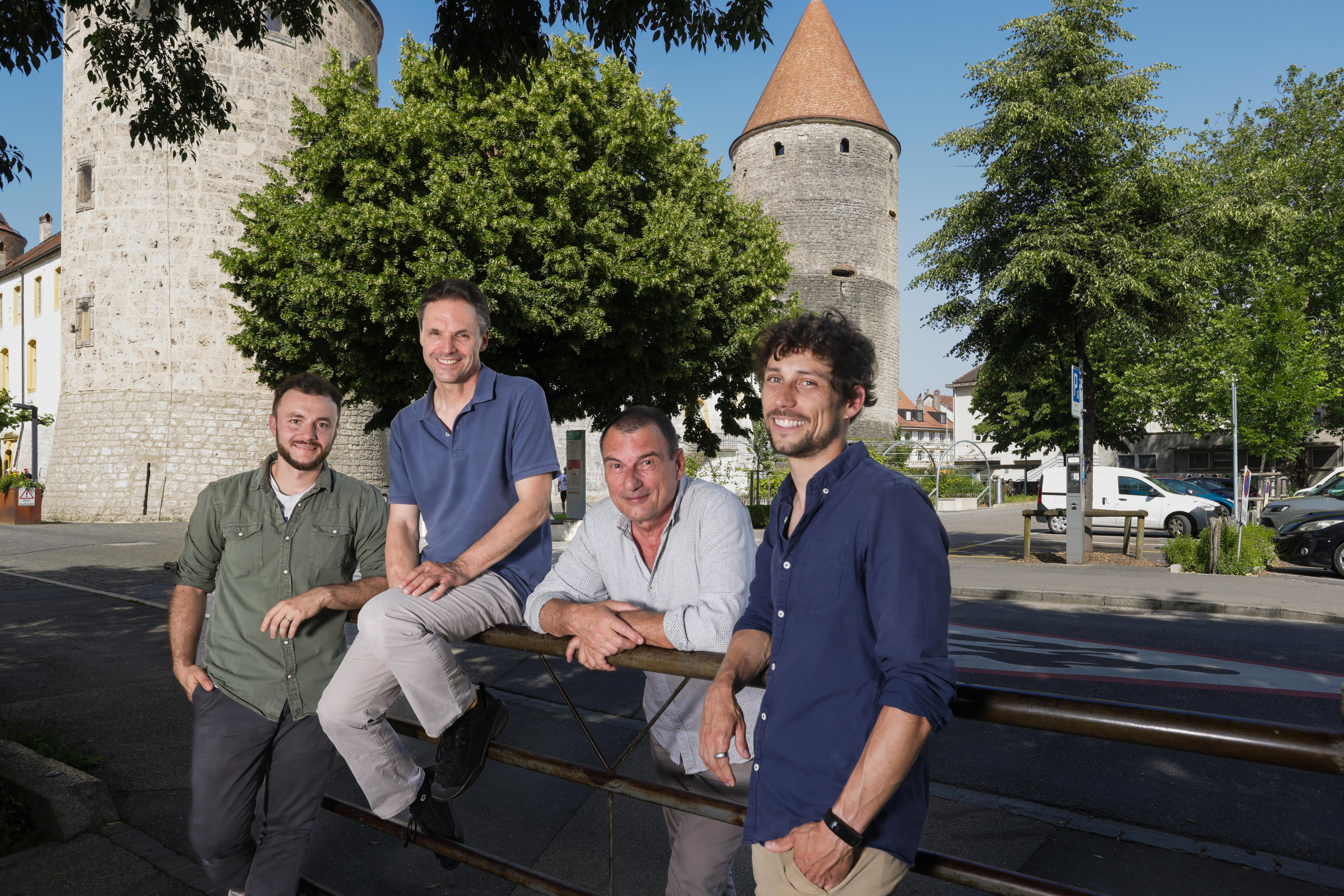Scientists from EPFL and Haute École d'Ingénierie et de Gestion du Canton de Vaud (HEIG-VD), working in partnership with the City of Yverdon-les-Bains, have analyzed the sleep quality of a sample of the city's residents. They discovered that sleep disorders are much more common there than elsewhere in the country.
"These figures should serve as a wake-up call for public health officials," says Philippe Voruz, the study's first author and a postdoc in the Geospatial Molecular Epidemiology (GEOME) research group within EPFL's Laboratory for Biological Geochemistry.Poor sleep quality can be the result of a broader health condition like depression, or of external factors such as stress, financial worries, air pollution and traffic noise." Voruz, a practicing neuropsychologist, and his colleagues plan to recruit additional study participants in the coming years to flesh out their findings.
A nationwide problem
According to the Swiss Federal Office of Public Health (OFSP), a third of Swiss residents suffer from sleep disorders - a percentage that's been rising steadily for the past 25 years. Chronic insomnia alone costs the country CHF 10 billion per year, and it's just one type of sleep disorder. A study similar to the one in Yverdon-les-Bains was carried out in Geneva Canton between 2021 and 2023 and revealed that 50% to 60% of the population there suffered from sleep deficiency. That study was led by the Geographic Information Research and Analysis in Population Health (GIRAPH) Laboratory, co-founded by Stéphane Joost, one of the Yverdon-les-Bains study's authors. Joost is a researcher at the Geneva University Hospitals (HUG) Unit of Population Epidemiology and a senior scientist at EPFL.

Real vs. perceived sleep quality
As part of the Yverdon-les-Bains study, the scientists combined the questionnaire data (which included participants' addresses) with maps of Yverdon-les-Bains in order to identify clusters of sleep disturbances. This showed that the problem is spread across the city and affects all demographic groups. Some neighborhoods were found to have a higher prevalence of sleep disorders than others; these were generally lower-income areas with little public transport and high levels of traffic noise. "Yet the residents of these neighborhoods are the ones who reported having better sleep quality than the others," says Voruz. "They're also those who attest to taking more sleeping pills and who have a longer sleep latency. This suggests there's a gap between perceived sleep quality and the results of more objective measures."
The scientists' map (see below) provides useful insights for city officials who want to improve the well-being of their residents. It also gives objective evidence that social inequality can lead to a relatively lower quality of life, which can ultimately take its toll on people's health. What's more, the map shows exactly where officials should target efforts to reduce traffic noise and air pollution in order to tackle the problem of poor sleep.
The next step will be to work closely with Yverdon-les-Bains city officials to hold information sessions and workshops
Early detection
The research team stresses that early detection is crucial to preventing sleep disorders from becoming chronic - especially since chronic sleep disorders are known to increase the risk of cancer, cardiovascular disease and cognitive impairment. "The next step will be to work closely with Yverdon-les-Bains city officials to hold information sessions and workshops for people in the at-risk neighborhoods we identified," says Voruz. "Then we'll run the survey again, one year later, to see if those measures were effective. There are a lot of misconceptions about what constitutes a good night's sleep" (see the inset). "Our goal is to give people the tools to improve their quality of life where it's really needed."
A citizen science initiative
In addition to participating in this study, Yverdon-les-Bains city officials have taken other proactive measures to improve their residents' well-being. Policymakers began measuring the impact of urban environments on public health in 2019, initially through a regional health evaluation and subsequently through the Urbasan citizen science initiative. Urbasan, developed jointly by EPFL, HEIG-VD, HUG and Unisanté, is open to municipal officials who want to address urban health issues.
Promoting public health
EPFL introduced a new master's program in Urban Systems this year with a possible specialization in "Health and well-being in the urban environment." This specialization teaches students how georeferenced data can be coupled with data on public health and the urban environment to design targeted prevention measures - like those explored in the Yverdon-les-Bains study - and implement them.






